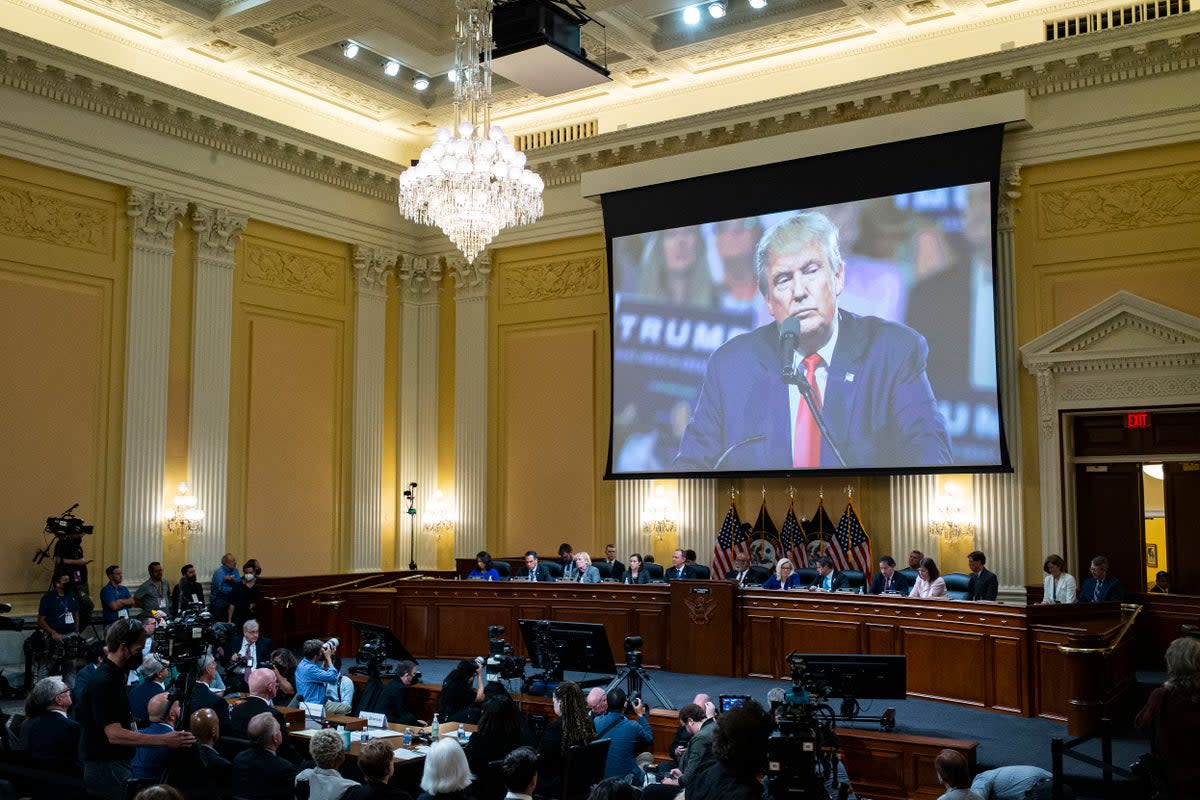Republican congressman says he won’t back Trump after evidence at Jan 6 hearings

Over the last seven years, numerous Republican leaders have expressed their dismay with former president Donald Trump’s behavior in one sentence and still promised to consider supporting him in the next.
But not Rep. Don Bacon of Nebraska, who told CNN’s Manu Raju on Wednesday that he will not support Mr Trump for president in the 2024 Republican primary. He said he made his decision after watching the January 6 committee hearings.
Mr Bacon, who represents a swing district based around Omaha, is among the more moderate members of the House Republican caucus. President Joe Biden won his congressional district during the 2020 election by nearly seven points, even as Mr Bacon won re-election against Democrat Kara Eastman by five points.
Mr Bacon’s announcement came in shortly after Arizona House speaker Rusty Bowers said that, though Mr Trump’s supporters threatened him and his family members in the aftermath of the 2020 election, he would still vote for Mr Trump again in 2024 if Mr Trump wins the Republican nomination for president.
Americans watching the January 6 committee’s hearings over the last several weeks have heard detailed testimony about how Mr Trump led a multifaceted conspiracy to overturn the results of the election and remain as president following the conclusion of his legitimately elected term in office.
Mr Trump has raved against the hearings, which come as speculation about the next presidential campaign — in both major political parties — has begun to intensify. Democrats are primarily concerned with whether the unpopular Mr Biden will seek a second term, while the attentions of Republicans have focused on Mr Trump and Florida governor Ron DeSantis.
Mr Trump has led numerous early polls of the 2024 Republican primary and is widely expected to launch another bid for the White House, but his grip on the party has been tested by the popularity of figures like Mr DeSantis and voters in states like Georgia who have rejected his endorsed candidates for office.
Many Republicans have, like Mr Trump, rejected the January 6 committee’s work and embraced increasingly anti-democratic stances on issues like voting rights, protest rights, and elections. Some, however, are concerned about the potential electoral costs.
Mr Bacon, who made clear that his objection to Mr Trump is rooted in an electoral calculation, is one such Republican.
“When it comes to the primary I will not be supporting him. I’ll be looking for better candidates. I want to win in our district,” Mr Bacon said. “We lost our district by eight points at the presidential level and I ended up winning mine by five, roughly. So I think we should be looking for somebody that can win in the suburban areas.”
Mr Bacon has, however, left the door open to supporting Mr Trump if he wins the Republican nomination in two years.


